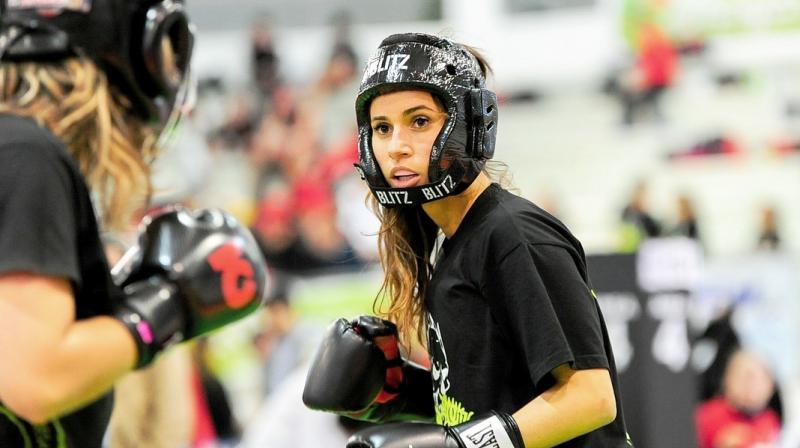Do women with high level of testosterone have advantage over other female athletes?
Is testosterone a male prerogative with it being a natural occurrence in human beings?

New Delhi: In a world that runs on patriarchal norms, where a man’s success is more highlighted—often made blurry by the lack of any measurable yardstick—‘sports’ is one discipline where women have an equal sway with their achievements.
For example, in India, more female athletes have brought home laurels at international events than their male counterparts. Yet, time and again, women are subjected to oppression in some form or the other, even in sports.
In fact, it was the topic of discussion at the recent episode of “Talking Turkey with Kanthi,” on Power Sportz. Touted as the boldest sports debate show in India, it is hosted by Kanthi D Suresh, Editor-in-chief of Power Sportz.
The show debated on IAAF’s hegemonic attempt to regulate testosterone levels in women athletes, and how the UN council has come down heavily on them.
The IAAF wants to enforce that levels of testosterone among competing female athletes should be even. Women athletes with a higher level of testosterone would have to undergo a hormone replacement therapy if IAAF is allowed to have the last say.
But, is testosterone a male prerogative, asks Suresh. "The testosterone level in a human being is a natural occurrence, and one doesn’t have control over it," she said.
When Caster Semenya, a South African athlete, had won the 800m at the 2009 world track and field championship by more than two seconds, she was called a man by a fellow competitor. The IAAF had cast aspersion on her being a woman.
Subsequently, she was rendered ineligible for competition and subjected to a series of sex tests to prove her womanhood. As a result, in 2011, the IAAF enacted a policy which restricts women with testosterone higher than the permitted level from participating in events.
The case is lying with the Court of Arbitration for Sport (CAS) in Lausanne, Switzerland, and the verdict is expected to come in a month’s time. The UN Human Rights Council has now thrown the hat in the ring, backing Caster Semenya against the IAAF’s policy.
Back home, Duttee Chand also faced a similar predicament of having a higher testosterone level. The IAAF had slapped a similar restrictive ban on Duttee Chand. However, the CAS had lifted the ban on Duttee in 2015.
IAAF is of the opinion that women with a high level of testosterone have an unfair advantage with other women athletes.
If athletes are not judged on the basis of height, hemoglobin—factors which can make a significant difference in levels of performance—then why a different standard on testosterone, argued show host Kanthi D Suresh.
"Being preoccupied with women athlete’s testosterone level is “not only misogynistic and sexist but also voyeuristic,” said Kanthi.
Even two male athletes have different testosterone levels, argued Kanthi Suresh, who is also the Editor-in-chief of Power Sportz. Amid a volatile discussion among the panel, she rued the fact that even AFI is happily toeing the line of the IAAF’s derogatory policy.
Moreover, even the couple of female athletes, who joined the show over the phone—one of them Duttee Chand herself— has rapped the IAAF rule as utter disgust and disrespect to women.
Ashwini Nachappa, the other phone-in guest, and an Arjuna awardee said that undue-advantage aspect should all-encompassing. IAAF should consider race, genetics, biology, or social and not levels of testosterone.
The IAAF diktat to undergo hormone replacement therapy for those women athletes with a higher level of testosterone can be grievously harmful.
“All athletic federations across the world have to ratify this policy before coming into significance,” said Kanthi D Suresh. Why do men want women athletes to prove that they are women, she asks.
As the decision is pending with the CAS, one can hope that a tenable decision comes out and it becomes easier for female athletes to compete in every sporting event in the future.

